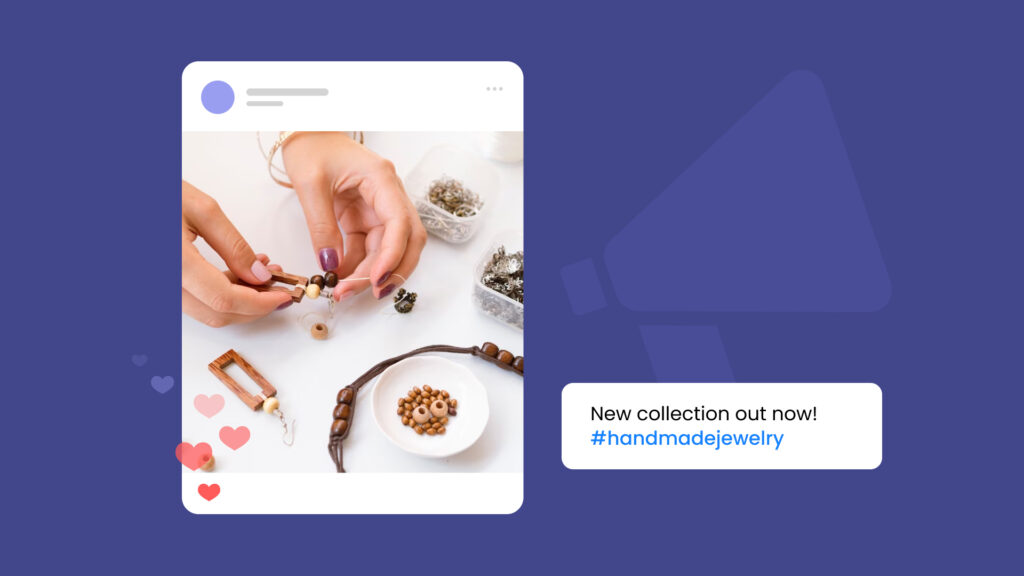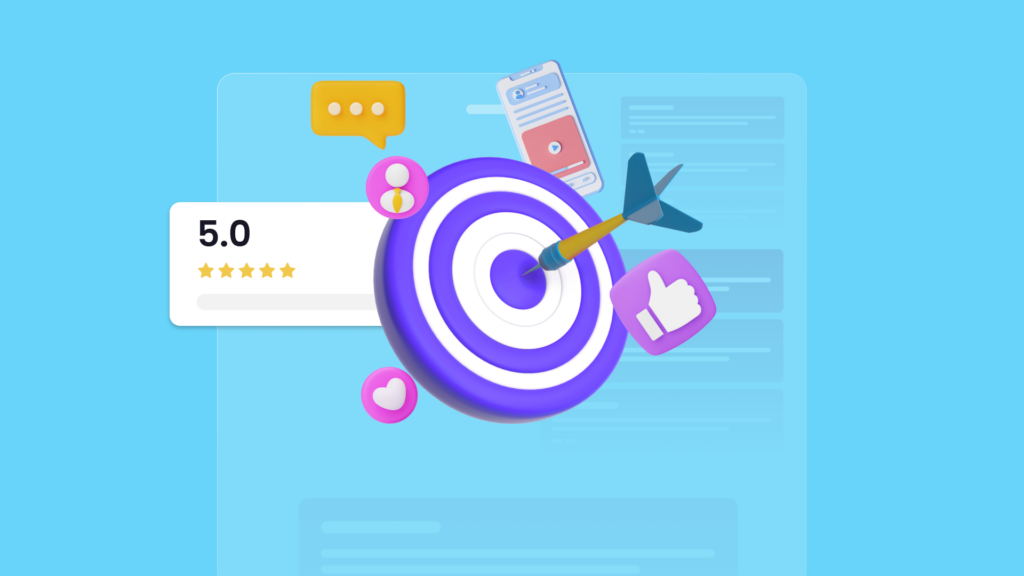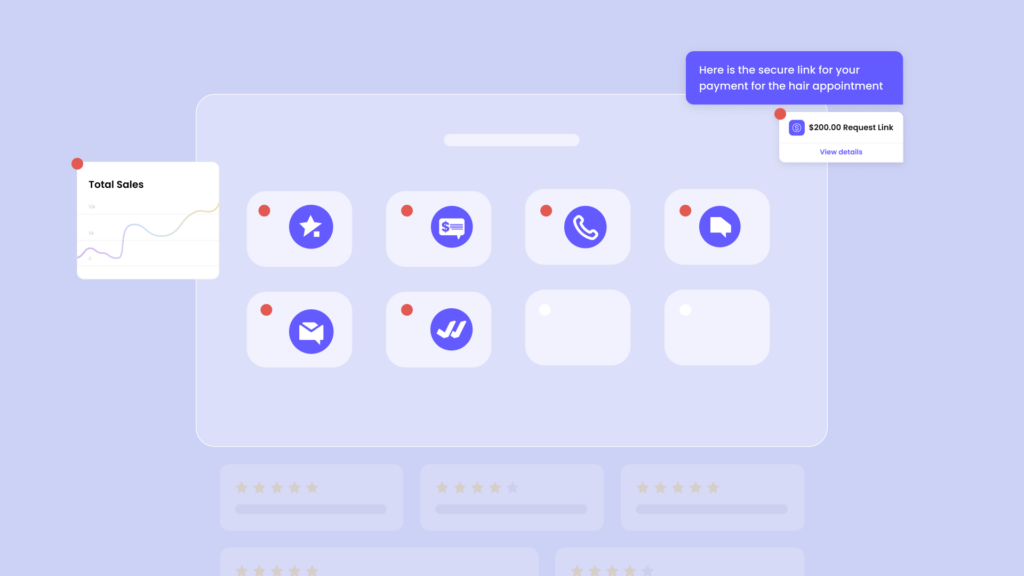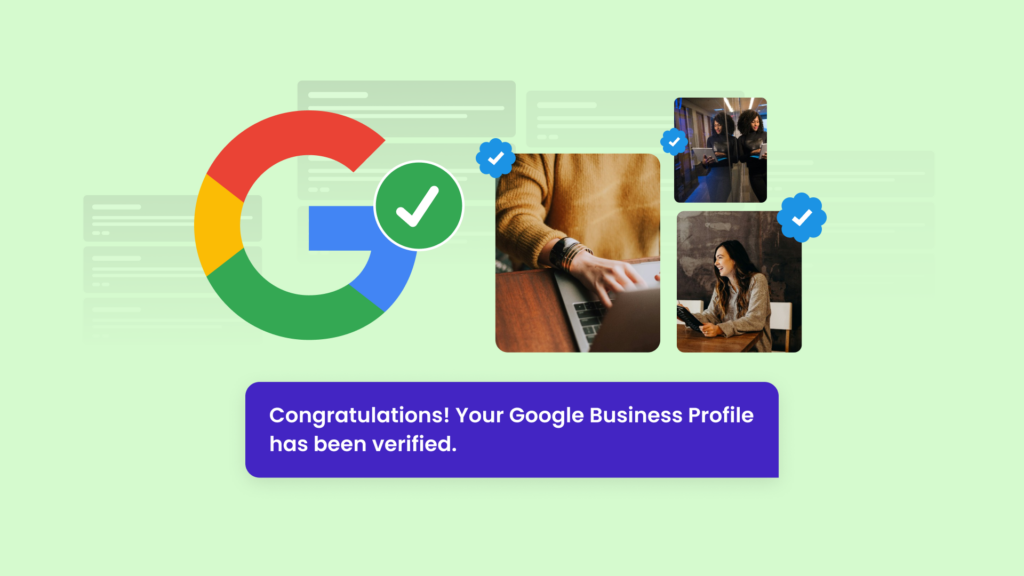If you’re the owner of a small business, you’re probably looking for ways to expand and attract more customers. Online marketing is definitely the way to achieve those goals but where do you even start? There are different types of marketing strategies and most of them are entirely in the digital space.
In this article we’ll be going through each one, step-by-step, and you can incorporate them all or focus on a select few. Experiment with each approach based on the nature of your business and the type of clients you want to communicate with.
Email marketing
Email marketing is by far the most used method by businesses of all sizes. The first marketing email was sent in the 70s. As the internet became a global phenomenon, email marketing expanded even further. The word “spam” was officially added to the dictionary and emails quickly turned into a tool for mass marketing.
Why does it work?
The email marketing of today is much more advanced. Instead of just flooding hundreds of emails with a single ad, businesses choose a more personalised approach. By collecting user data on their activity, clients receive emails related to their searches, interests, and needs.
How to get started?
To run an email campaign you’ll need to get an email service provider. Alternatively, you can also use a customer relationship management platform. Your end goal with both is the same, creating an email and sending it to as many clients as possible.
Before you start dishing out emails you’ll have to create a template. You can get creative and do it all by yourself or use an already existing one provided by your email service provider.
You’ve got the technology and the template. All that’s left is to fill those emails with content. Generate some great content ideas and connect with your audience. Offer value to your clients and add a call to action.
Sadly, we’re no longer in the 80s and before you begin sending emails you’ll need your customer’s consent to receive emails. Make sure you’re on the right side of GDPR to avoid any potential legal issues in the future.
Social media marketing
Social media websites and apps are more popular than ever before. Facebook, Instagram, and Twitter are among the most used social apps with billions of active users.
Why does it work?
Aside from the numbers, reaching out to clients through social media is much more personal than sending an email. Communicating in a more conversational and casual way is a break from the cliche marketing phrases, allowing your small business to build a deeper connection with your customers.
How to get started?
Choose the right platform. There are many social media platforms for you to choose from but some of them will be a better fit for your business. Are you in the wellness industry? Then Instagram is a good choice. If you’re offering B2B services, LinkedIn is often the go-to place
Create a plan and set goals for your marketing campaign. Are you trying to increase repeat sales, attract new clients or boost brand awareness? Double check you’re on the right platform based on your main goal.
Use the platform’s tools. With analytics, you can get a good idea of how well your campaign is performing and alter your approach if necessary. Scheduling tools can help you plan ahead and optimise your campaign.
Extend your reach with advertising. All social media platforms offer paid advertising services. With paid advertising, you can target specific groups of clients and get higher conversion rates.
Optimise your business website
In the modern day and age, the internet connects the whole world. If you want your business to stand out from the competition, you’ll have to place higher in search engine results. To achieve that you’ll have to optimise your website so it doesn’t get punished by search engines.
Why does it work?
Before using a service or buying a product, people tend to search for the best options on the internet (in most cases through Google). If your business isn’t even on the list of results then it’d be hard for customers to notice it. Placing your small business higher on that list is crucial and it can do wonders for the overall online presence and visibility of your business. That’s why you have to earn the favour of Google’s algorithm.
How can you do it?
Do the research and find the most relevant words related to your business. This will help you get an idea of what to focus on next.
Create content for your website that incorporates those keywords but try to make it look organic. You can experiment with written content in different formats and if you have the budget we encourage you to go for video. Putting just the keywords or copying content from other websites will get you punished by the algorithm. Some of the things to remember when generating content include:
- Include the relevant keywords, even in URLs
- Add your keywords to headings in written content
- Add descriptions and alt tags that contain the keyword
- Don’t forget to include both internal and external links
Implementing all of these practices is just the start and you’ll have to show patience. Results that include your business higher on the list might take some time to appear. If you lack the technical skills, you can always hire a dedicated SEO agency.
Content marketing
We’ve just talked about keywords, their importance, and the need for content. But what sort of content should you produce? Can all small businesses produce relevant content? Of course!
Why does it work?
Through different types of content, you can really introduce your brand to the world and set a specific tone of voice. In a way, the content is there to make a lasting impression on your customers and win them over to your small business. Think about some of the most famous brands in the world, they all stand for something. What does your business stand for?
How can you do it?
The easiest way to enter the world of content marketing is through blogging. Make sure the quality is top notch as errors can damage the first impression your brand leaves on a potential client. What sort of products or services does your business offer? Are you the owner of a hair salon? Write a blog on “Avoid these 5 habits that can damage your hair”. If you’re in the spa sector you can write a piece on “Is the sauna good for you?”. Just think about something that’ll be useful to your customers.
Alternatively, if long-form content isn’t your thing, you can always go for lists. They’re easy to create and serve basically the same purpose, except they’re much shorter. The two example articles above can easily be turned into lists by drastically reducing the length and presenting just the answers people are looking for. One small downside is that this will reduce the time users spend on your website.
If you prefer the video format, go for it. Podcasts, interviews, you name it. People love listening to discussions about their favourite topics and it’s no wonder Youtube is still one of the most popular websites in the world.
Once you have your content, you can start promoting it on your social media channels. Share it with your audience and track what’s working through analytics. If your blogs are barely read but your videos are getting a lot of views, focus on making more video content.
Boost your brand with reviews
If there’s one thing that can skyrocket the reputation of your business, it’s user reviews. But beware, for the opposite is also true – bad reviews can bring you down.
Why do reviews work?
Customer reviews are often the first thing other users see. They’re public, easy to access, and offer a level of transparency that is sometimes impossible to get from the business itself. Reviews can leave a lasting impression and make or break your business. That’s why it’s important to handle all customer queries and resolve issues in a timely manner.
How can your business benefit?
Your business will get reviews, it’s inevitable. To increase your online presence, one of the first things you should do as the owner of a small business, is to create a Google Business Profile. This will, quite literally, put your business on the map, not only boosting your local SEO but also improving your visibility in the digital space. Fill out your profile with all the necessary details, including address, number, a brief introduction of your business (with keywords), and visuals (photos or videos).
From the time you establish it, your Google Business profile turns into a literal representation of your business. For most people. Sooner or later, users visiting your company will be leaving reviews, both good and bad. Fear not though, a negative review can almost always be turned around. In most cases, Google Business is your main front but it isn’t the only place where clients can leave reviews, other popular websites include Facebook, TrustPilot, Yelp, and many others. Find the ones relevant to your business and establish an online presence, just like Google Business.
Frequently asked questions about online marketing for small businesses
How to do online marketing for small businesses?
Online marketing for small businesses, or indeed any business, involves a blend of strategy, planning and execution. You should start by defining your target audience, you can then tailor your content and messaging to their specific needs and wants. Once that’s done, you can then use social media, email, newsletters and blogs to reach your audience. However, the key lies in consistency and authenticity, especially when engaging with your audience and responding to their feedback, so you can refine your strategies based on what resonates with them.
How do I target my small business online?
Once you have defined your target audience, you can create ‘buyer personas’ which pinpoints their interests and pain points, and then use Google Ads or social media campaigns to deliver your message directly to your specific demographic. To maximise your reach and engagement, you can then use data insights to further refine your targeting and continuously optimise your campaigns.
How do I start online marketing for beginners?
Getting started may feel overwhelming, but the first thing to do is set yourself clear goals on what it is that you want to achieve; more web traffic, build brand awareness, grow your social media following, or boost sales? Whatever your goal, you can then target your content to it. The very basics include creating a user-friendly website, establishing a presence on social media* and produce valuable content like blog posts or videos. And when you feel more confident, you can explore the more advanced stuff like SEO and paid advertising.
* Contrary to popular belief you do not have to be on every single platform, stick to where your target audience is!
How do I do digital marketing on my own?
First off, it is entirely doable and achievable with the right approach. There are plenty of YouTube videos which will help teach you the basics, and then when you feel ready you can plan your strategy and set achievable goals. You can use free or budget-friendly online tools to manage social media scheduling, analyse website traffic, and track your progress. But remember, learning and adapting are part of the process, there is no ‘right way’ just the right way for you, so be open to experimenting and refining your approach along the way.
Conclusion
Making your small business known in the digital space is no easy task but there are plenty of ways to get there. Most of the marketing channels are actually free so if you’re short on your marketing budget, you can easily start out with no investment whatsoever. The world today is more connected than ever before and reaching your audience is just a manner of time. Create a marketing plan and start exploring the different options available for your business. Focus on bringing value to your clients and building a relationship, and success will surely follow.
About Magic
Magic helps local businesses grow. Thousands of local businesses use Magic to get more online reviews, win new customers, easily manage customer conversations and grow sales. Magic offers these features:
- Reviews: Get more reviews with automatic review requests for popular review sites like Google, Facebook, Yelp, TrustPilot, and more. Rank high on local search and enhance your visibility on Google.
- Inbox: Keep track of customer conversations across channels in one inbox, including SMS, Facebook, Instagram, and Gmail. Manage conversations better as a team and do more with industry specific templates.
- Text Marketing: Drive more sales with instant text campaigns and reach your customers at the right moment with automation. Use prebuilt templates to send out text campaigns in minutes.
- Webchat: Turn website visitors into customers with SMS powered Webchat. Chat to website visitors directly through SMS so you won’t miss a lead, even when they leave your website.
Looking to grow your local business? Book in a demo call now. Follow us on Instagram and Facebook



